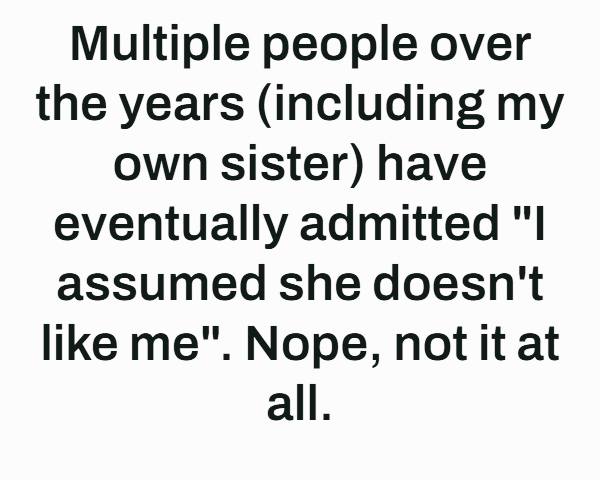“AITA for lamenting that I wedded a thoughtful person?”

Being hitched to somebody who distinguishes as an outrageous thoughtful person can introduce remarkable difficulties, particularly as the elements of a relationship develop over the long run. In a 20-year marriage, one accomplice’s profound contemplation can essentially shape the relationship’s social scene and individual satisfaction.
For the beyond 22 years, the singular’s life partner has battled with framing dear fellowships, keeping up with a couple of colleagues. This has prompted a social dynamic where, in spite of periodic collaborations and commitment two or three occasions, the absence of a special interaction frequently brings about restricted social solicitations and botched chances to extend connections inside their local area. This social hole has provoked inquiries concerning the job of self preoccupation in the couple’s more extensive social cooperations and their effect on the relationship.
Notwithstanding the thoughtful companion’s endeavors to take part in group environments, it has become evident that starting discussions and participating in get-togethers frequently falls on the shoulders of the more outgoing accomplice. Over the long run, the acknowledgment that the independent life partner is probably not going to change has prompted an acknowledgment of the circumstance. This grasping has been urgent in molding the outgoing accomplice’s way to deal with mingling and framing significant associations outside the home.
As their youngsters approach adulthood and begin to turn out to be more free, the outgoing accomplice faces a time of reflection with respect to the fate of the relationship. The progress from an early, love-filled union with one where actual fascination winds down and social necessities develop can achieve sensations of yearning for a more conversational accomplice and a more noteworthy capacity to fabricate local area connections. This reflection features the more extensive ramifications of keeping a relationship with an outrageous loner and what it can mean for individual satisfaction and social fulfillment.
In exploring these intricacies, it is fundamental for the two accomplices to take part in open correspondence about their requirements and assumptions. Understanding and adjusting to one another’s social inclinations can encourage a more amicable relationship while tending to individual longings for social cooperation and association.
Peruse for more data Reddit




Image credits: Getty Images (not the actual photo)







Image credits: Farhad Ibrahimzade (not the actual photo)







Figuring out Associations with Outrageous Self observers
Exploring a relationship with an outrageous thoughtful person can be testing, especially when one accomplice has an essentially unique social requirements and inclinations. This dynamic frequently turns out to be more articulated as the years go by and the two accomplices age. For example, a couple wedded for almost twenty years could find that as they become older, the independent accomplice’s propensity to withdraw further into isolation turns out to be more obvious.
In such connections, the outgoing accomplice might battle with sensations of confinement, especially when the self observer’s social commitment is restricted or non-existent. This frequently prompts what is going on where the outgoing accomplice is liable for starting and keeping up with discussions and social connections. The absence of proportional commitment can make a feeling of dejection and disappointment, as the thoughtful mate may not normally search out friendly associations or fellowships.
The outgoing accomplice should move toward the circumstance with responsiveness and understanding. Communicating disappointment or a craving for more discussion can be precarious, as it could cause the withdrawn accomplice to feel judged or compelled to change. Open and sympathetic openness is absolutely vital for tending to these worries without causing the contemplative accomplice to feel that they are to blame or insufficient.
Over the long run, as the two accomplices proceed to develop and advance, these elements can turn out to be more articulated. The contemplative accomplice’s social retreat may be more about solace and inclination as opposed to an individual fizzling. Conversely, the outgoing accomplice might have to track down elective ways of meeting their social necessities, possibly searching out new kinships or exercises that line up with their social inclinations.
In general, keeping a relationship with an outrageous self observer requires persistence, common regard, and a readiness to comprehend and adjust to one another’s social necessities. Offsetting individual satisfaction with the real factors of each accomplice’s disposition is fundamental for supporting a sound and strong relationship.
Before we give you Over powered’s update about his child, we should investigate a portion of the top reactions:
thriftdiving writes:


542cliche writes:


tsx143 writes:


healthybell writes:


Overseeing Relational intricacies with a Removed Youngster and Independent Accomplice
Managing a removed teen youngster and a very independent life partner can introduce critical difficulties for any family. A parent confronting such a circumstance could feel overpowered by the distinction between their cravings for a more dynamic everyday life and the ways of behaving showed by both their youngster and accomplice.
The young kid, who is 14 years of age, shows an elevated degree of social withdrawal and hesitance to take part in exercises beyond his telephone and computer games. Regardless of the parent’s broad endeavors to support cooperation in different extracurricular exercises like games, clubs, and local gatherings, the youngster remains separated. The youngster’s social nervousness, which obstructs his capacity to work ordinarily at school, compounds this continuous battle. In spite of the fact that he approaches treatment and has been recommended drug, protection from taking the prescription and an absence of help from his mate add to the continuous difficulties.
The parent’s disappointment is elevated by the glaring difference between their own social tendencies and those of their relatives. While the parent looks for a more lively and dynamic way of life, incorporating partaking in excursions and participating in friendly exercises, the companion favors a more stationary and withdrawn way of life, which frequently includes perusing or investing energy alone. This dissimilarity in inclinations has prompted huge strain in the marriage, exacerbated by the parent’s failure in their youngster’s way of behaving and the apparent absence of progress.
To resolve these issues, the parent has endeavored different procedures, for example, eliminating screens and advancing elective exercises, yet these have yielded restricted achievement. The pandemic has additionally convoluted matters, as it has heightened the youngster’s separation and diminished cooperation in school and social exercises. Endeavors to present new interests and give open doors to development, such as investigating sports or participating in family exercises, are progressing.
The circumstance features the significance of understanding and compassion in overseeing relational peculiarities. It likewise highlights the requirement for open correspondence and backing, both inside the family and from outer assets like treatment. Tracking down a harmony between regarding every relative’s requirements and empowering commitment and development is essential for cultivating a more amicable and steady family climate.
What’s more, presently, Over powered’s significant update about his child’s way of behaving:


